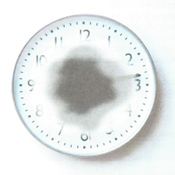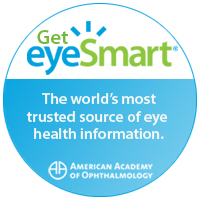
Age-related macular degeneration (AMD) is a disease of the macula, the small part of the eye’s retina that is responsible for central vision. This disease affects both distance and close vision and can make some close up activities very difficult or even impossible. Macular degeneration is the leading cause in vision loss in people over the age of 50.
Many people with AMD have deposits under the retina called drusen. Drusen alone typically does not cause vision loss, however, when they grow in size or number, there is an increased risk of developing advanced AMD. Those at risk for developing a late stage of AMD may have a large amount of drusen or they may have abnormal blood vessels growing beneath the macula in one eye.
VITIMINS, MINERALS AND AMD
A scientific study called AREDS (Age-Related Eye Disease Study) has shown that some antioxidant vitamins and zinc may reduce the impact of AMD in some people.
The study showed that those at higher risk for late stage macular degeneration who followed a dietary supplement of Vitamin C, E and bets-carotene, along with zinc, lowered the risk of the disease progressing to advanced stages by about 25%. The same treatment did not have the same results among those without AMD, or within the first stages of AMD.

appear in your central vision.
The nutritional supplements used by AREDS that proved to be beneficial contain:
- Vitamin C (500 mg)
- Vitamin E (400 IU)
- Beta-carotene (15 mg)
- Zinc oxide (80 mg)
- Copper oxide (2 mg, to prevent the loss of copper associated with zinc supplements)
The levels of antioxidants and zinc that were shown to be effective in slowing AMD’s progression cannot be consumed through your diet alone. These vitamins and minerals are recommended in specific daily amounts as supplements to a healthy, balanced diet.
For medical reasons, some people may prefer not to take high dosages of antioxidants or zinc. The AREDS study did not reveal any evidence that the treatment may be toxic. However, beta-carotene may increase the risk of developing lung cancer among smokers, or those who have recently quit smoking.
Another large study in women showed a benefit form taking folic acid and vitamins B6 and B12.
Other studies have shown that eating dark leafy greens, yellow, orange and other colorful fruits and vegetables, rich in lutein and zeaxanthin, may reduce your risk for developing AMD.
SHOULD I TAKE VITIMINS FOR AMD?
Vitamin supplements are not a cure for AMD, nor will they restore vision you may have already lost from AMD. However, specific amounts of certain supplements do play an important role in helping those at high risk for advanced AMD to maintain their vision. Talk to your ophthalmologist to determine if you are at risk for developing advanced AMD and to learn if supplements are recommended for you.
Lauderdale Eye Specialists provides this on-line information for educational purposes only and it should not be construed as personal medical advice. Lauderdale Eye Specialists disclaims any & all liability for injury or other damages that could result from use of the information obtained from this site.


